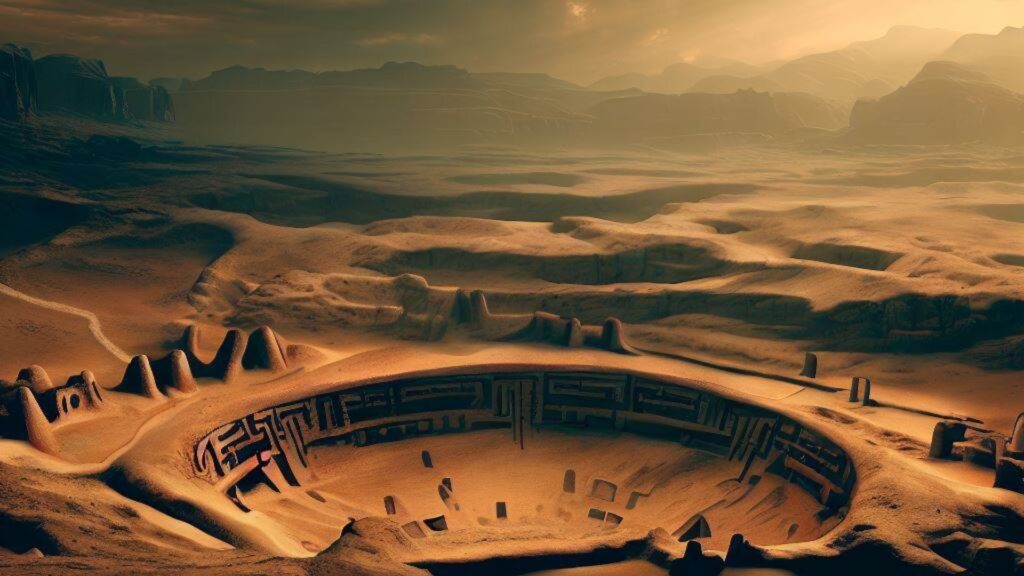Introduction
Lost civilizations and ancient cataclysms have long captured the imagination of humanity. The allure of uncovering forgotten worlds, shrouded in mystery and hidden by the sands of time, continues to intrigue both scholars and enthusiasts alike.
From archaeological expeditions to speculative theories, the quest to understand our past and the cataclysmic events that shaped it has fueled countless discussions, conspiracy theories, and scientific explorations. In this article, we will embark on a journey through the annals of history, delving into the enigmas surrounding lost civilizations and the cataclysms that may have led to their demise.
Unveiling the Past: Prehistory and Archaeology
Before the recorded history we are familiar with, there existed a vast span of time known as prehistory. This era stretches back to the earliest traces of human existence, long before the advent of written records. Archaeology, the science of uncovering and interpreting artifacts and remains from ancient civilizations, plays a crucial role in piecing together the puzzle of prehistory. Through meticulous excavation and analysis, archaeologists have unearthed remnants of past societies that provide invaluable insights into our ancestral past.

The Mystique of Lost Civilizations
The concept of lost civilizations sparks the imagination, conjuring images of magnificent cities, advanced technologies, and societies that may have surpassed our own in knowledge and wisdom. From the mythical Atlantis, as described by Plato, to the enigmatic civilization of Easter Island with its towering stone statues, lost civilizations have become a tantalizing topic of exploration. These civilizations, often shrouded in myth and legend, beckon us to uncover the truth behind their rise and fall.
Ancient Cataclysms: Natural Disasters and Extinction Events
One intriguing aspect often associated with the decline of lost civilizations is the idea of ancient cataclysms. These cataclysms are thought to be natural disasters of immense scale that significantly impacted ancient societies. Volcanic eruptions, massive floods, earthquakes, and meteor impacts are some of the cataclysmic events that have been hypothesized to have caused widespread devastation and potentially led to the downfall of once-thriving civilizations.
While some of these hypotheses remain speculative, geological evidence and archaeological findings provide intriguing clues that hint at a tumultuous past.
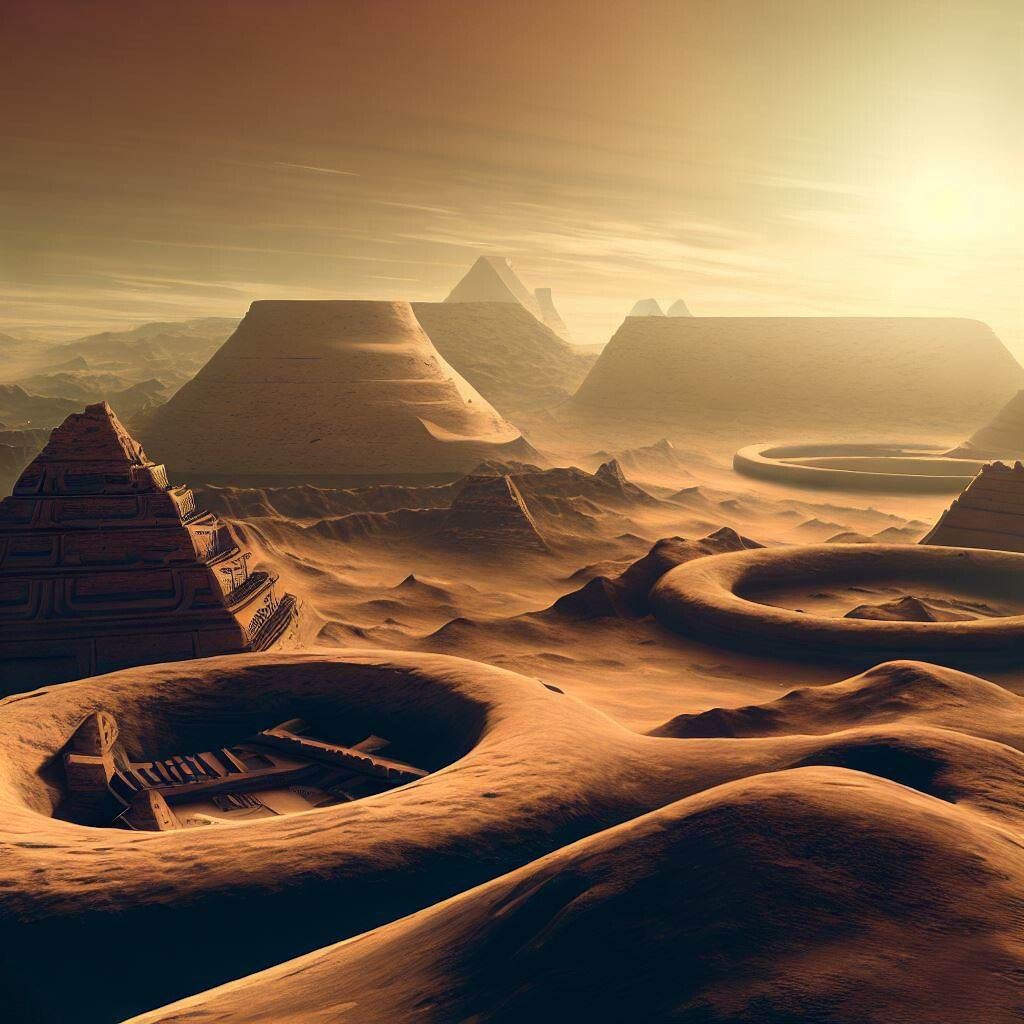
The Enigma of Mohenjo-daro’s Decline
The decline of Mohenjo-daro has been a subject of speculation among researchers. Some theories suggest that the city’s downfall was due to environmental factors, such as a catastrophic flood or a shift in the course of the Indus River. The evidence of extensive flooding in the archaeological record has led to the hypothesis that the city may have faced recurring natural disasters, ultimately leading to its abandonment.
Theories of Ancient Cataclysms: Atlantis
Among the most enduring myths of a lost civilization is the legendary island of Atlantis. Described by the ancient Greek philosopher Plato, Atlantis was said to be a highly advanced and prosperous civilization. The island’s sudden disappearance and submergence into the sea have captivated the minds of historians and archaeologists for centuries.
The Atlantis story recounted in Plato’s dialogues “Timaeus” and “Critias” presents Atlantis as a powerful naval empire that sought to conquer neighboring lands. According to Plato, a catastrophic event, possibly a massive earthquake or volcanic eruption, caused Atlantis to sink into the depths of the ocean, vanishing from history.
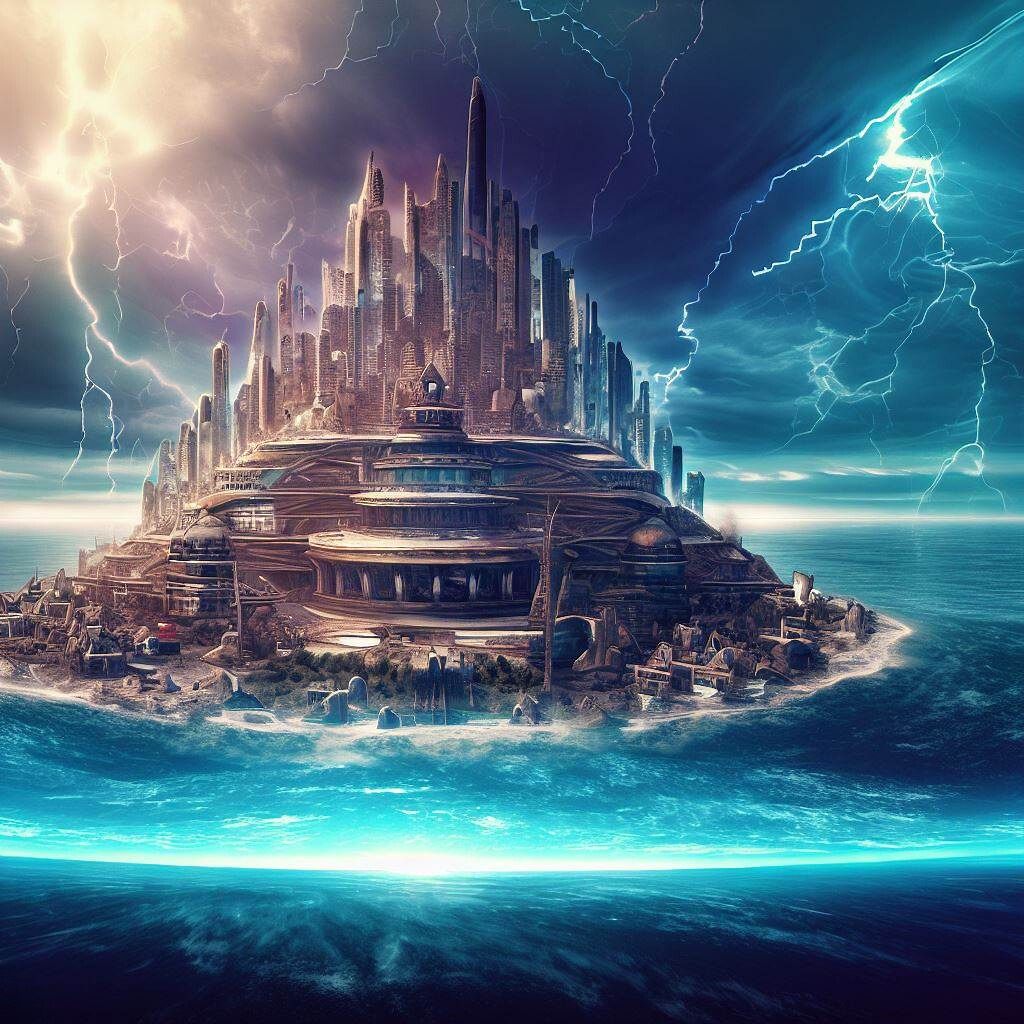
Unraveling the Clues: The Search for Atlantis
While many scholars consider the Atlantis story to be a work of fiction or allegory, some researchers have searched for tangible evidence of its existence. Some theories propose that Atlantis may have been located in the Mediterranean, possibly on the island of Santorini.
Santorini’s volcanic eruption around 1600 BCE, one of the most significant volcanic events in human history, has been suggested as a possible inspiration for the Atlantis legend.
The Devastation of Pompeii: A Cataclysmic Event
Ancient cataclysms were not limited to mythical tales. The eruption of Mount Vesuvius in 79 CE stands as a haunting reminder of the raw power of nature. The bustling Roman city of Pompeii was engulfed in a torrent of volcanic ash and lava, freezing it in time and preserving a snapshot of daily life in ancient Rome.
The eruption of Mount Vesuvius was a catastrophic event that resulted in the loss of thousands of lives and the obliteration of entire settlements. Pompeii, once a thriving city, became buried beneath layers of volcanic debris, forgotten for centuries until its rediscovery in the 18th century.
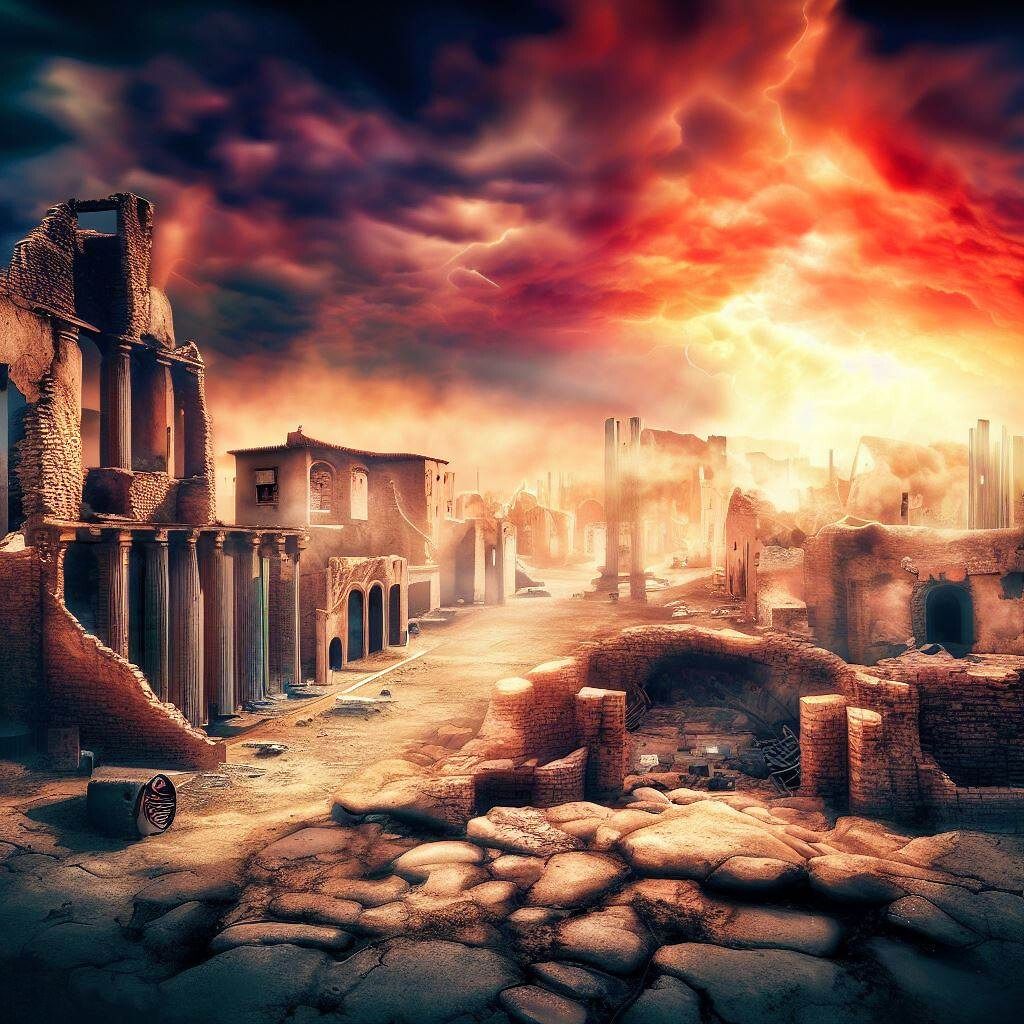
Unraveling the Mysteries: Science and Speculation
The quest to understand lost civilizations and ancient cataclysms is not confined to the realm of myth and speculation. Modern science and rigorous research have also played a pivotal role in shedding light on these mysteries.
Geologists, astronomers, and historians work hand in hand to examine the geological record, celestial events, and ancient texts to piece together the puzzle of our past. The convergence of scientific evidence and historical data offers a tantalizing glimpse into the lives of our distant ancestors and the cataclysms that may have shaped their destinies.
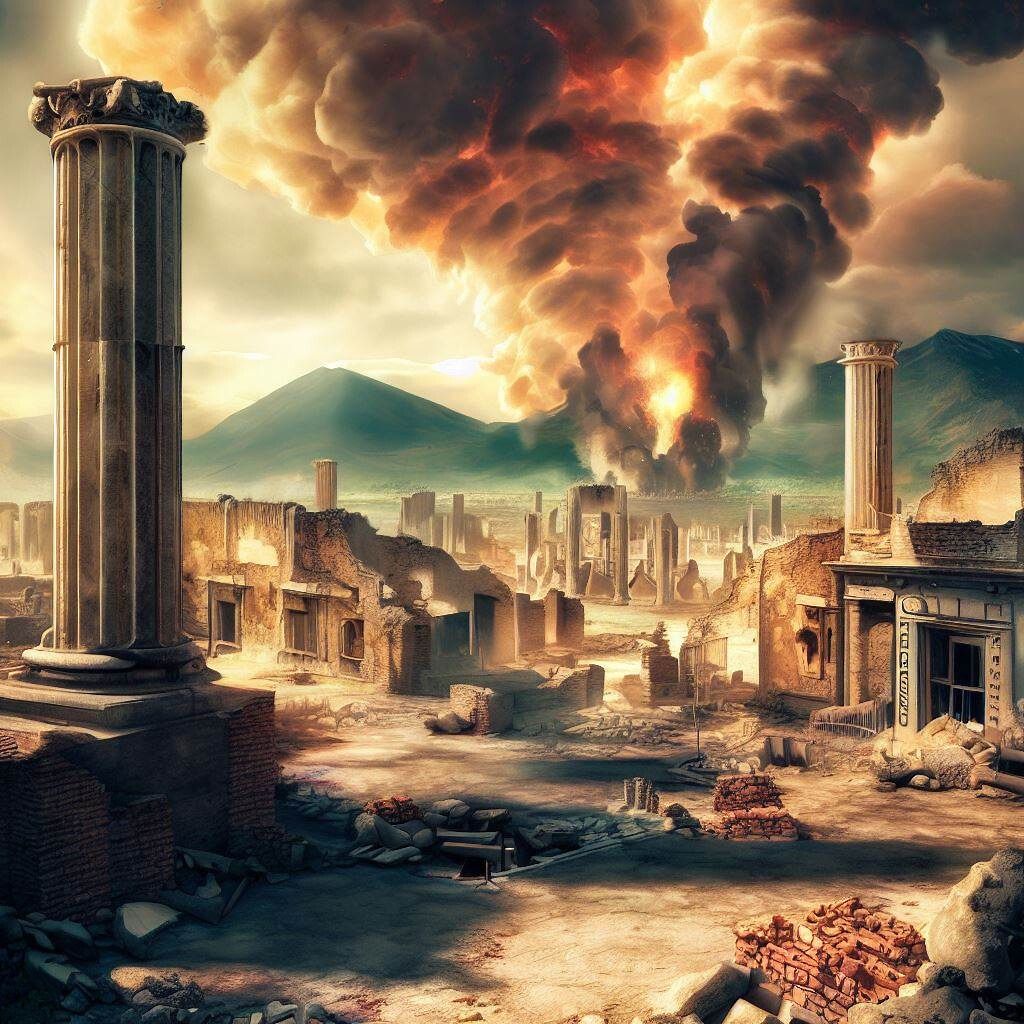
The Enigmatic Link: Survivors and Hidden Legacies
As we delve deeper into the enigma of lost civilizations, a recurring theme emerges – the idea of survivors and hidden legacies. Some researchers propose that remnants of these ancient cultures may have survived cataclysmic events, passing down their knowledge and wisdom to future generations.
These hidden legacies, if they exist, could have left an indelible mark on subsequent civilizations, shaping our history in ways we are only beginning to comprehend.
The Allure of Conspiracy Theories
Lost civilizations and ancient cataclysms have also become fertile ground for conspiracy theories. Some enthusiasts and theorists propose alternative narratives, challenging mainstream historical accounts.
While skepticism can sometimes lead to breakthroughs in research, it is essential to approach these alternative theories with critical thinking and empirical evidence. Separating fact from fiction is a delicate balance in the quest for truth.
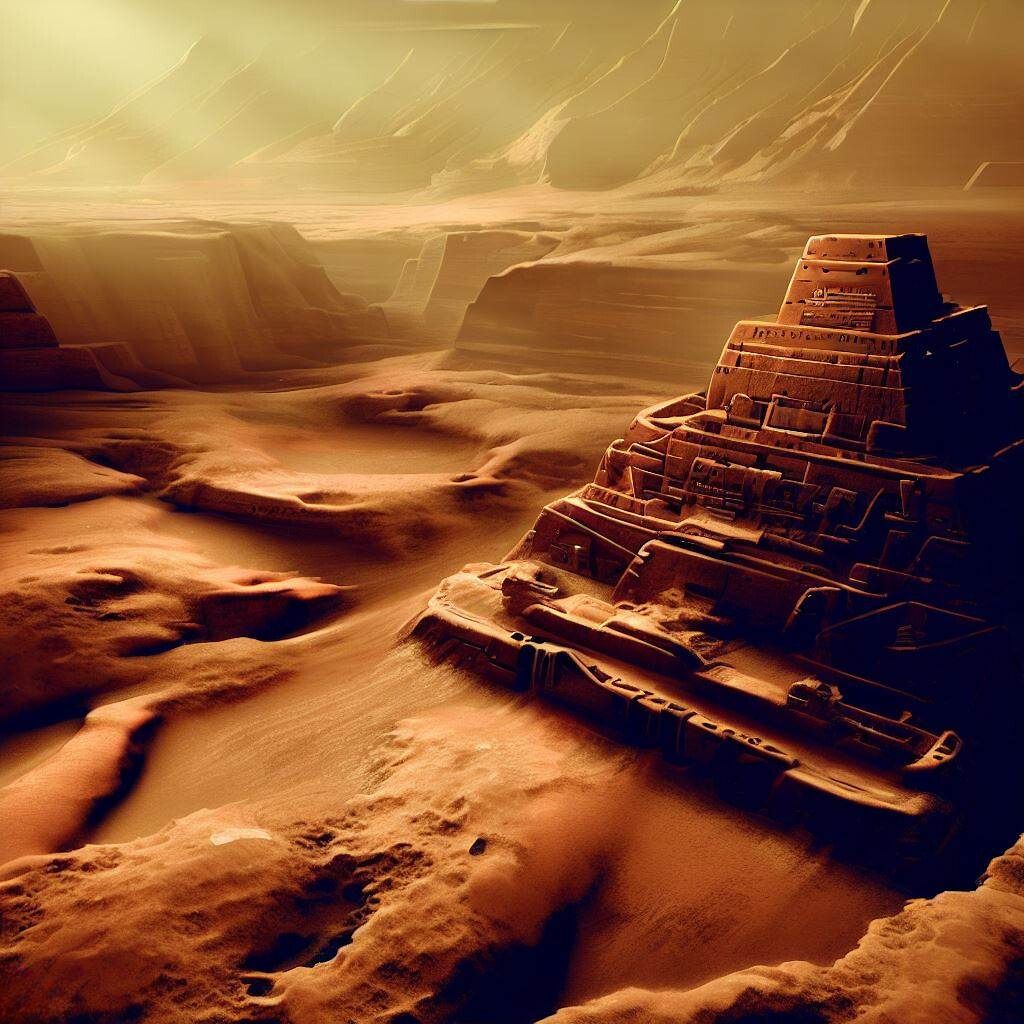
Conclusion
The allure of lost civilizations and ancient cataclysms continues to captivate us, drawing us into a world of mystery and discovery. Through the lens of archaeology, science, and speculative theories, we strive to unearth the truth behind these enigmas.
Prehistory stands as a testament to the resilience of humanity, surviving and thriving through the ages, adapting to both natural and man-made challenges. As we venture into the future, the quest to unravel the secrets of our past remains an enduring and fascinating pursuit.
Lost civilizations and ancient cataclysms are more than mere historical curiosities; they are the echoes of forgotten worlds waiting to be heard once more. In the end, it is through relentless curiosity and rigorous research that we may shed light on the shadows of our past and find a new understanding of the civilizations that came before us.
If you’re intrigued by the mysteries of lost civilizations and ancient cataclysms, you won’t want to miss out on exploring the enigmatic world of Antarctica. Head over to Atmospheric Lights to delve into the captivating realm of ancient advanced civilizations in Antarctica.
Unveil the icy enigma as you discover the fascinating theories and evidence surrounding this icy continent’s hidden past. From possible remnants of lost civilizations to the secrets of ancient cataclysms, this article will take you on an intriguing journey through the frozen mysteries of history.
Don’t miss this opportunity to uncover the secrets of Antarctica’s past and its potential role in shaping the course of human history!
FAQ
Q1: What are lost civilizations? A1: Lost civilizations refer to ancient societies and cultures that have faded from historical records and were largely unknown until archaeological discoveries shed light on their existence. These civilizations left behind impressive structures and artifacts that continue to puzzle and fascinate researchers today.
Q2: What are ancient cataclysms? A2: Ancient cataclysms are catastrophic events that occurred in the distant past and are believed to have had significant impacts on ancient civilizations. These cataclysms include natural disasters like volcanic eruptions, floods, earthquakes, and meteor impacts, which may have led to the decline or disappearance of entire civilizations.
Q3: Is there evidence of advanced ancient civilizations? A3: Yes, there is evidence of advanced ancient civilizations in various parts of the world. Archaeological sites, such as Mohenjo-daro in the Indus Valley and Machu Picchu in Peru, showcase impressive architectural feats and sophisticated engineering that hint at highly developed societies.
Q4: Are there any surviving records or accounts of lost civilizations? A4: While some lost civilizations left behind written records, such as the ancient Egyptians and Mesopotamians, many others did not have a writing system. As a result, much of what we know about these civilizations comes from archaeological findings, deciphering ancient inscriptions, and piecing together clues from different sources.
Q5: Is the story of Atlantis real or a myth? A5: The story of Atlantis, as described by Plato, remains a topic of debate among historians and scholars. While some believe Atlantis is a fictional tale with philosophical and moral undertones, others speculate that it may have been inspired by a real historical event or a lost civilization. The search for Atlantis continues to captivate the imagination, but concrete evidence of its existence remains elusive.
